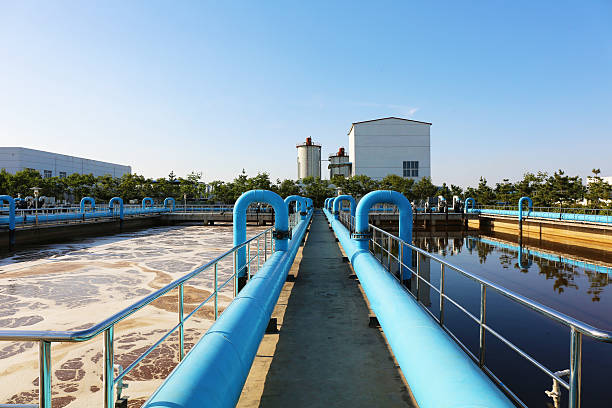To say that a lot has happened in the water industry in 2024 is quite the understatement, and given that the final decision from Ofwat is expected in December, it is likely that there will be many more moments that get in between a business and the most competitive water rates possible.
A lot of promises have been made to clean up a water industry that has in many parts of the UK faced sewage controversies, regulatory violations and existential crises, constantly appearing in the news for all the wrong reasons.
The latest attempt to stop this is the Water (Special Measures) Bill, announced early in September with the intention to allow enforcement action to be undertaken faster and involve much stronger punitive measures than are available with the current system.
These measures could potentially include criminal liability for the executives of water companies who continually break the law, but how will this look in reality, and what is it likely to change in the short and long term?
From Water To Porridge
The headline proposal is to make individuals with positions of power in water companies criminally liable for persistent legal infractions, something that was not really available despite the level of infractions that broke the law.
According to the UK Government, since the privatisation of British water in 1989, only three people have been prosecuted without an appeal, something corroborated by an EA dataset from December 2023.
The maximum penalty for individuals, typically guilty on obstruction of justice charges for failing to help with EA and Drinking Water Inspectorate investigations, was only a fine, when perverting the course of justice could potentially result in life imprisonment in some rare instances and has resulted in prison sentences for other people.
The offences could in theory cause repeat offenders to face lengthy prison sentences, particularly if they are deemed to have failed to sufficiently co-operate or even have obstructed the EA.
However, whilst this is somewhat unlikely, the greater powers and potential threat of personal criminal liability could at least create a chilling effect on executives who were considering breaking the law in the name of lowered costs or increased profits.
As well as this, the standard of proof is set to be lowered from “beyond reasonable doubt” to “on the balance of probabilities”, which allows for more minor infractions to be prosecuted without long-running investigations that may lead to a measly £300 fine.
Beyond the punitive measures, the proposals also ensure a wider independent monitoring body that will regulate every storm overflow outlet.
Water companies will be required to publish data within an hour of any emergency overflow in a way that is easy to interpret, process and read. This will not only be publicly available but also used as evidence in any investigations undertaken by regulatory bodies.
This means that going forward, it will not take a major investigative effort starting with a 2021 paper and involving several major press institutions to get access to the facts about just what was happening to Britain’s waterways.
As well as this, there is one other major issue that is set to be tackled, and that involves one of the major issues with Britain’s largest and most troubled water company.
Bonuses For Bad Performances
One of the biggest frustrations amongst businesses and the general public, when it came to the water industry, is one that has been a recurring issue when major issues have experienced a major crisis; the people most responsible for the problems are the ones who appear to be rewarded the most.
The chief executives of water companies have been paid (effectively by themselves) more than £41m in incentives, financial benefits and bonuses in just four years. This is even true for companies such as Thames Water who are less than a year from existential collapse without additional funding.
Part of the bill will ban performance-related bonuses unless the companies they work for pass stringent standards tests concerning their stewardship of the environment, consumer service, criminal liability and overall financial resilience.
These rules will also create a fit and proper person test for not only any new director or chief executive but also on a rolling basis, with customer involvement in the decision-making of the company on these issues.
Wholesale Review
A review of the entire water industry is also set to begin this Autumn, something that has once again highlighted the conflict Ofwat is caught in the middle of between the water industry wanting to increase prices further and customer fury of what is being portrayed as “rewarding failure”.
Exactly what will happen next is unclear, but the first steps of that process are set to emerge imminently.



